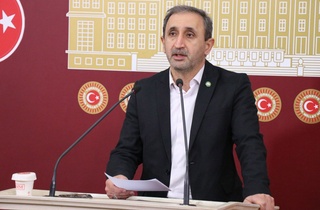He went beyond simply condemning the event, urging a comprehensive approach to address its lasting impact and prevent future occurrences.
Demir argued that the "28 February mentality" continues to cast a long shadow, with its underlying principles still influencing aspects of society and leading to ongoing violations of fundamental rights, particularly those related to religious expression. He cited the restriction of headscarves in public institutions and the targeting of individuals based on their faith as examples.
According to Demir, the coup aimed to manipulate the very fabric of Turkish society and politics. He pointed out the attempts to control educational institutions, media outlets, and the judiciary to enforce a specific vision that suppressed diverse viewpoints and restricted freedoms.
Demir criticized the incomplete nature of the reckoning with the coup, emphasizing that while some individuals involved faced legal repercussions, others who played crucial roles, especially those who financed the coup within media, judiciary, and education sectors, remained largely unaddressed. He argued that this lack of comprehensive accountability allows the "risk of repetition" of similar interventions to persist.
To prevent the recurrence of such events, Demir proposed specific steps. He called for new regulations surrounding "security investigations and interviews," which he considers prone to misusing inaccurate information and leading to victimization.
Most significantly, Demir emphasized the need for a fundamental shift through the adoption of a "completely new civilian constitution." He argued that the current 1982 constitution, drafted in the aftermath of another military coup, inherently harbors elements that facilitated the legitimacy of such interventions. He urged all political parties to "meet at the same table" and collaboratively work towards crafting a new constitution that safeguards the democratic principles and prevents the recurrence of undemocratic interventions.
Demir also commemorated the late Prime Minister Necmettin Erbakan, who stood in opposition to the 28 February coup process, on the 13th anniversary of his passing. He praised Erbakan's "perseverance, determination, and seriousness" in challenging the "tutelage" mentality that sought to curtail diverse voices within Turkish society.
Demir's statement highlights the ongoing debate surrounding the legacy of the 28 February coup process in Türkiye. It underscores the need for a comprehensive approach to address the lingering issues arising from the event, ensure accountability, and prevent similar interventions in the future. (ILKHA)



 Güncel
Güncel
 Güncel
Güncel
 Güncel
Güncel
 Güncel
Güncel
 Dünya
Dünya
 Güncel
Güncel
 Dünya
Dünya
 Güncel
Güncel
 Güncel
Güncel
 Güncel
Güncel





